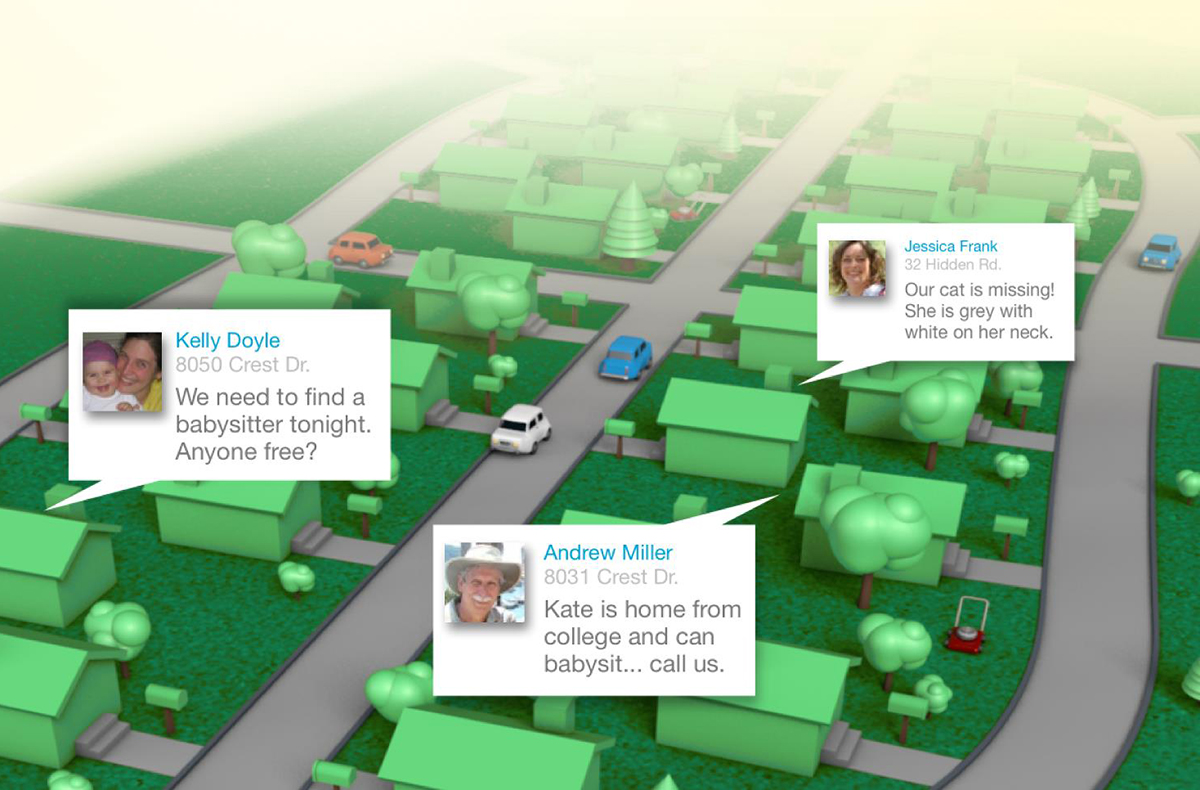Community Policing Goes Digital
Instead of walking the streets of a specific neighborhood, knocking on people’s doors to give them a heads up about reports of a rash of robberies, some police departments are merely sending out a mass message targeted at residents who live in the affected area.
Using “Nextdoor,” a social media network that lets residents create private groups with abutting neighbors, police are reaching out to people to update them on events happening on their streets, without actually holding a community meeting.
Braintree Police announced last week that they’re the latest department to start exploring the use of the platform, and others, like police in Brookline, have expressed interest in doing the same.
“In the digital age we are in now, social media is in everybody’s life in one aspect or another, and we are trying to keep up with that. It’s a form of digital community policing, if you think about it,” said Officer Peter Gillis, who runs the Braintree department’s social media and community outreach programs.
Gillis said the department’s trying to get more residents to sign up for Nextdoor, to make it more convenient for people to share information with the department, and vice-versa. He said police can’t monitor activity going on between users within a specific group, so there’s no “Big Brother aspect” involved. But officers like him do have the ability to reach out to those who sign up for Nextdoor, and can even address neighborhood-specific concerns.
“It’s for the residents, mainly. They use it as a social media platform however they like,” said Gillis, adding that it’s like an online Neighborhood Watch program. “Our involvement will only come into play when we want to reach out to a specific neighborhood, and tell them their was a rash of car break-ins, or something along those lines. We can even reach out to one neighborhood, or the entire town, to send out some sort of alert.”
Nextdoor, a San Francisco-based company, is in more than 40,000 neighborhoods across the country. On their website, they promote the benefits of agencies like police departments getting involved with the social site, claiming it can be used to engage in two-way communications and to solicit public opinion in targeted areas of a community, without having to tap into an entire network of followers on Facebook and Twitter.
“Residents are already organizing virtual crime watch through Nextdoor. Public agencies can join the conversation and support residents with information and resources,” according to the company’s website.
Gillis said Braintree decided to get involved back in October, after he attended a seminar on the fundamentals of social media and policing, and then spoke with the department’s chief about the website.
While Braintree hasn’t launched the police account yet, something they plan to do later this month, they have been getting advice from officers over in Billerica who have been using Nextdoor since August of 2013.
“We can more easily know the audience we are talking to,” said Billerica Police Lt. Greg Katz, who runs the department’s account. “It has helped the residents because it keeps the town stuff separate from other forms of social media. It works pretty well; it’s a good concept and fits right in with the community policing mentality.”
Over in Braintree, Gillis said since they announced they were looking to get involved with Nextdoor, other departments have become curious, too.
“Brookline police reached out to us recently,” said Gillis. “I talked to a Lieutenant over there, and he basically said he’s in the beginning stages like Braintree is. It’s just one more way for people to better connect to their neighborhood, and with the police.”


